Related Research Articles

The Independent Labour Party (ILP) was a British political party of the left, established in 1893, when the Liberals appeared reluctant to endorse working-class candidates, representing the interests of the majority. A sitting independent MP and prominent union organiser, Keir Hardie, became its first chairman.

Bloody Sunday took place in London on 13 November 1887, when marchers protesting about unemployment and coercion in Ireland, as well as demanding the release of MP William O'Brien, clashed with the Metropolitan Police and the British Army. The demonstration was organised by the Social Democratic Federation and the Irish National League. Violent clashes took place between the police and demonstrators, many "armed with iron bars, knives, pokers and gas pipes". A contemporary report noted that 400 were arrested and 75 persons were badly injured, including many police, two policemen being stabbed and one protester bayonetted.

Jenny Julia Eleanor Marx, sometimes called Eleanor Aveling and known to her family as Tussy, was the English-born youngest daughter of Karl Marx. She was herself a socialist activist who sometimes worked as a literary translator. In March 1898, after discovering that Edward Aveling, her partner and a prominent British Marxist, had secretly married a young actress in June of the previous year, she poisoned herself at the age of 43.
The Fellowship of the New Life was a British organisation in the 19th century, most famous for a splinter group, the Fabian Society.
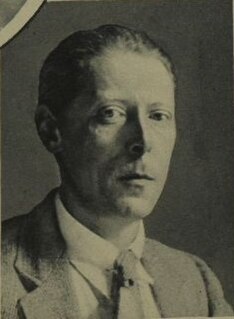
Albert Samuel Inkpin, was a British communist and the first General Secretary of the Communist Party of Great Britain (CPGB). He served several terms in prison for political offences. In 1929 he was replaced as head of the CPGB and made head of the party's Friends of Soviet Russia organisation, a position he retained until his death.
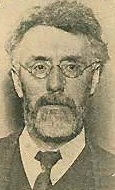
David Daniel "Dan" Irving was a British socialist activist and Labour Party Member of Parliament.

Justice was the weekly newspaper of the Social Democratic Federation (SDF) in the United Kingdom.
James MacDonald was a British trade unionist.

The Socialist League was an early revolutionary socialist organisation in the United Kingdom. The organisation began as a dissident offshoot of the Social Democratic Federation of Henry Hyndman at the end of 1884. Never an ideologically harmonious group, by the 1890s the group had turned from socialism to anarchism. The group was finally disbanded in 1901.
Michael Maltman Barry, often known as Maltman Barry, was a Scottish political activist who described himself as a Marxist but stood in elections for the Conservative Party.
John Hunter Watts (1853–1923), known as Hunter Watts, was a British socialist activist.
Joseph Frederick Green was a British politician. He sat in the House of Commons from 1918 to 1922 as the Member of Parliament (MP) for Leicester West.

The Socialist Labour Party was a socialist political party in the United Kingdom. It was established in 1903 as a splinter from the Social Democratic Federation (SDF) by James Connolly, Neil Maclean and SDF members impressed with the politics of the American socialist Daniel De Leon, a Marxist theoretician and leading figure of the Socialist Labor Party of America. After decades of existence as a tiny organisation, the group was finally disbanded in 1980.

The British Socialist Party (BSP) was a Marxist political organisation established in Great Britain in 1911. Following a protracted period of factional struggle, in 1916 the party's anti-war forces gained decisive control of the party and saw the defection of its pro-war right wing. After the victory of the Bolshevik Revolution in Russia at the end of 1917 and the termination of the First World War the following year, the BSP emerged as an explicitly revolutionary socialist organisation. It negotiated with other radical groups in an effort to establish a unified communist organisation, an effort which culminated in August 1920 with the establishment of the Communist Party of Great Britain. The youth organisation the Young Socialist League was affiliated with the party.
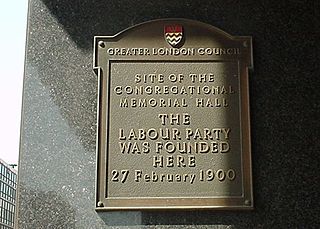
The Labour Representation Committee (LRC) was a pressure group founded in 1900 as an alliance of socialist organisations and trade unions, aimed at increasing representation for labour interests in the Parliament of the United Kingdom. The Labour Party traces its origin to the LRC's foundation.
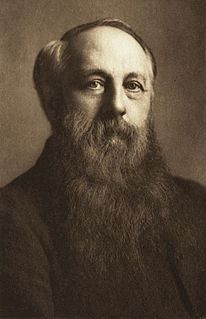
Henry Mayers Hyndman was a British writer and politician.
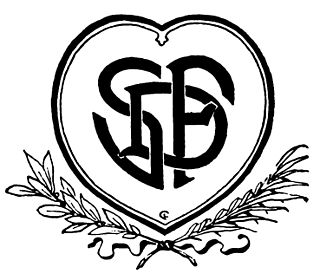
The Social Democratic Federation (SDF) was established as Britain's first organised socialist political party by H. M. Hyndman, and had its first meeting on 7 June 1881. Those joining the SDF included William Morris, George Lansbury, James Connolly and Eleanor Marx. However, Friedrich Engels, Karl Marx's long-term collaborator, refused to support Hyndman's venture. Many of its early leading members had previously been active in the Manhood Suffrage League.
Charles L. Fitzgerald was a British socialist activist and journalist.

Far-left politics in the United Kingdom have existed since at least the 1840s, with the formation of various organisations following ideologies such as Marxism, revolutionary socialism, communism, anarchism and syndicalism.
Fred H. Gorle was a British social democratic activist.
References
- ↑ G. Bernard Shaw. The Fabian Society: What it has Done; & How it has Done It. Fabian Tract № 41. London: The Fabian Society, August 1892.
- 1 2 Florence Boos, ed. and annot. "Footnotes" in William Morris's Socialist Diary. 1887.